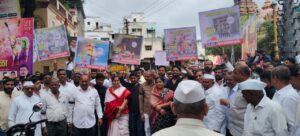Viral Post: ‘India Needs Polio-Like Drive Against Vitamin D, B12 Deficiency’

Viral Post: ‘India Needs Polio-Like Drive Against Vitamin D, B12 Deficiency'
Experts call for nationwide awareness campaign as hidden nutritional crisis grips millions
A viral post on social media platform X has reignited public discourse on one of India’s most overlooked yet widespread health issues, the rampant deficiency of Vitamin D and Vitamin B12. The post, which read, “India desperately needs another polio-like drive but for adults with Vitamin D + B12 deficiency,” has struck a chord with thousands, prompting a wave of concern and calls for urgent intervention.
Health experts and researchers have long warned that India is facing a silent epidemic. According to data from the Indian Council of Medical Research (ICMR), nearly 490 million Indians suffer from Vitamin D deficiency. The situation is so acute that 80–90 per cent of Indians are believed to have insufficient Vitamin D levels, according to studies published in the Indian Journal of Endocrinology and Metabolism.
The crisis extends to Vitamin B12 as well. A review published by the National Center for Biotechnology Information (NCBI) reveals that 47 per cent of North Indians and up to 75 per cent of vegetarians across the country have low Vitamin B12 levels. The deficiency often goes unnoticed until serious complications such as fatigue, neurological issues, or anemia set in.
Despite India’s tropical climate, lack of sun exposure is a major contributor to Vitamin D deficiency. “Urban lifestyles, extended indoor hours, covered clothing, and widespread sunscreen use all reduce the skin’s ability to produce Vitamin D,” explains, Senior Consultant in Internal Medicine. He adds that food fortification remains rare, with most dairy products in India lacking added Vitamin D, unlike in many Western nations.
In the case of Vitamin B12, dietary habits are largely to blame. “Since B12 is mostly present in animal-based foods, India’s predominantly vegetarian population is especially at risk,” notes Dr. Gupta. Malabsorption conditions, such as celiac disease or chronic gastrointestinal infections, only worsen the problem.
The viral post has sparked calls for a national awareness and screening campaign, similar to India’s historic polio eradication drive. Experts argue that early detection, dietary education, food fortification, and targeted supplementation could help curb this preventable health crisis. As more citizens and medical voices join the conversation online, the hope is that policy makers will respond with the urgency the issue demands.











